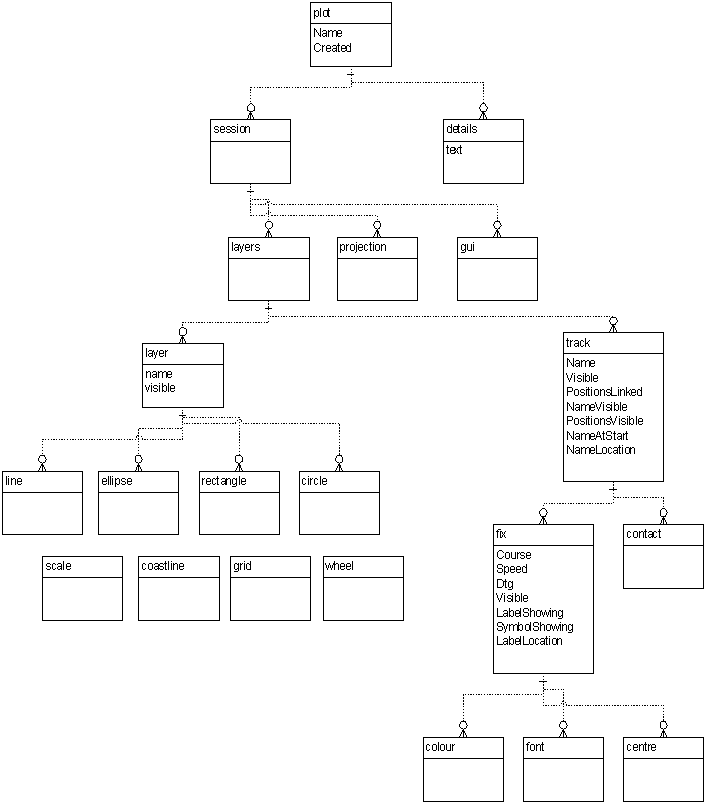| 16.2. Debrief file format | ||
|---|---|---|
 | Chapter 16. Debrief file formats |  |
DPF is the Extensible Markup Language. Like its predecessor SGML, XML is a meta-language used to define other languages. The article in the Reference Guide taken from MSDN gives some background to XML
An acknowledged shortcoming of the former file format ( dpl) used in Debrief was the frequency with which Debrief modifications rendered previous DPL files unreadable. This use of Java serialization offered low cost in development terms and was seen as essential to store the more complex data used in Debrief 2000 (such as projections, and formatting data).
The only way to divorce the Debrief version from the file format has been to adopt an independent file format. This independent format must be structured in order to store Debrief data tidily, and the development to support it must not be too "expensive". The adoption of XML meets both of these criteria = it is quite capable of storing Debrief data, and there are a number of libraries available which support it.
XML provides additional benefits beyond those described above:
It is human-readable, offering the following benefits:
Apparently corrupt data files can be examined in a text editor and repaired
Data files can be edited outside Debrief
It is a world-wide standard independent of Debrief and Java
Applications are freely available which support it: Internet Explorer will open XML data files for inspection
When used in conjunction with the Debrief DTD, the IBM Xeena editor provides easy editing/creation of Debrief plots
As more organisations/industries adopt XML, there is increased likelihood that import/export filters will not be required, since XML documents are easily translated between each other.
The XML structure adopted within Debrief is as follows:
Figure 16.2. XML file structure in Debrief

![[Note]](images/note.gif) | Note |
|---|---|
|
In Autumn 2014 the |